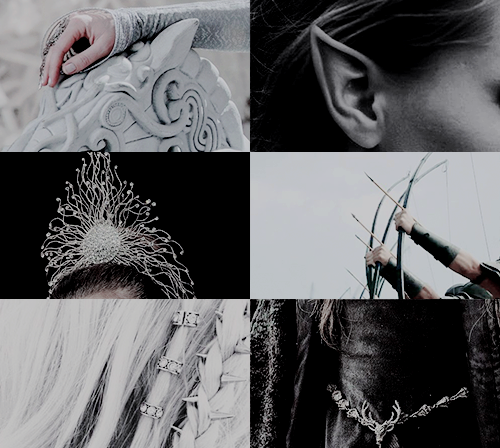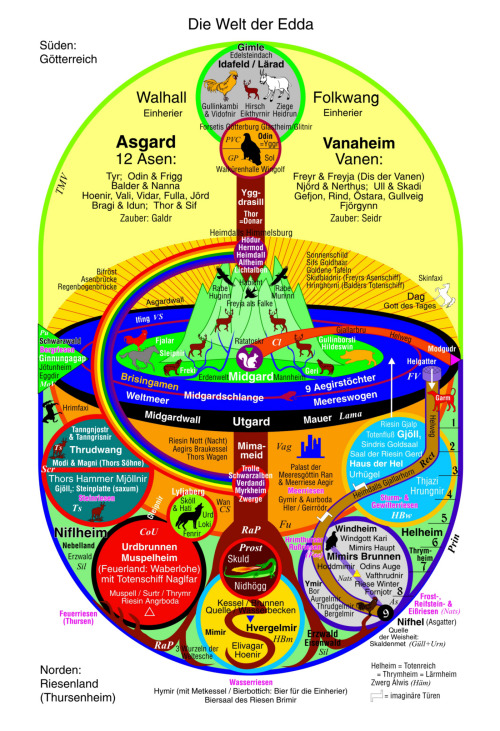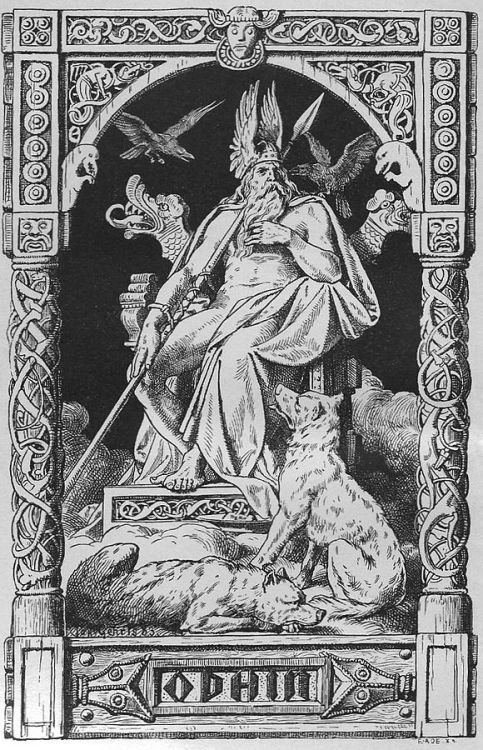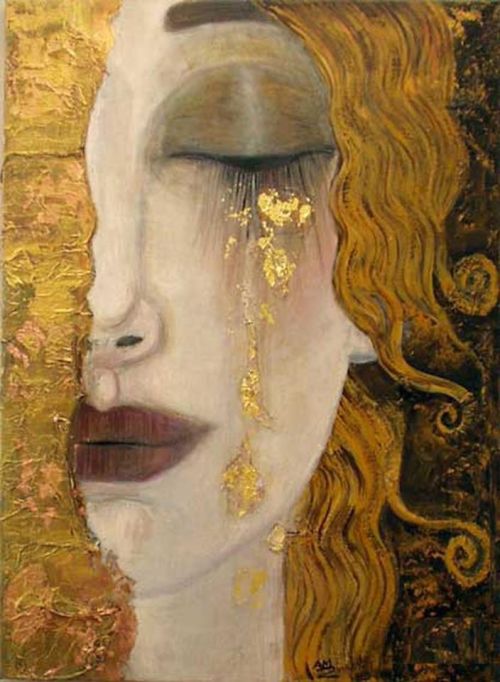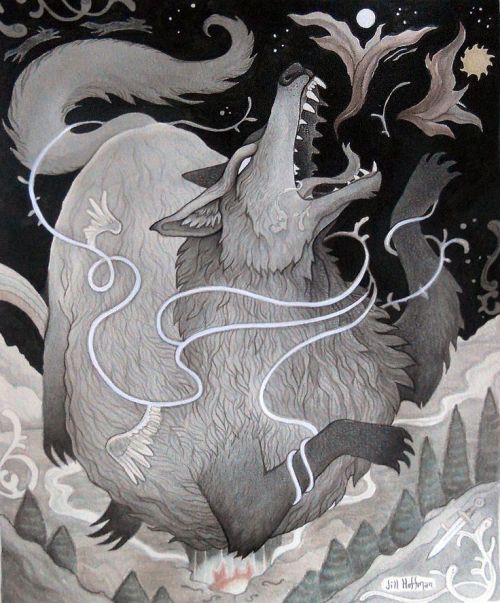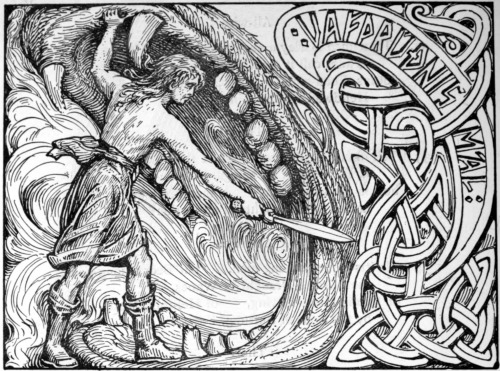#germanic mythology
favourite myths:elves
An elf (plural: elves) is a type of supernatural being in Germanic mythology and folklore. Reconstructing the early concept of an elf depends almost entirely on texts in Old English or relating to Norse mythology. Later evidence for elves appears in diverse sources such as medical texts, prayers, ballads, and folktales.
Post link
Baldr’s Brow (scentless mayweed)
“A certain herb is so white that it is likened to Baldr’s brow; of all grasses it is whitest, and by it thou mayest judge his fairness, both in hair and in body.
Eitt gras er svá hvítt at jafnat er til Baldrs brár. Þat er allra grasa hvítast, ok þar eptir máttu marka fegrð hans bæði á hár ok á líki.”
Prose Edda, ch. 22
Post link
Two ravens sit on Odin’s shoulders, and into his ears they tell all the news they see or hear. Their names are Hugin [Thought] and Munin [Mind, Memory]. At sunrise he sends them off to fly throughout the whole world, and they return in time for the first meal. Thus he gathers knowledge about many things that are happening, and so people call him the raven god. As is said:
Hugin and Munin
fly each day
over the wide world.
I fear for Hugin
that he may not return,
though I worry more for Munin.
(The Lay of Grimnir. 20)
______________________________________________________________
Hrafnar tveir sitja á öxlum honum ok segja í eyru honum öll tíðendi, þau er þeir sjá eða heyra. Þeir heita svá, Huginn ok Muninn. Þá sendir hann í dagan at fljúga um heim allan, ok koma þeir aftr at dögurðarmáli. Þar af verðr hann margra tíðenda víss. Því kalla menn hann Hrafnaguð, svá sem sagt er:
Huginn ok Muninn
fljúga hverjan dag
jörmungrund yfir;
óumk ek Hugin,
at hann aftr né komi,
þó sjáumk ek meir of Munin.
(Prose Edda, ch. 38)
Post link
(Freya’s Tears by Gustav Klimt)
Óðr went off on long travels, and Freyja stayed behind weeping. Her tears are red gold.
Óðr fór í braut langar leiðir, en Freyja grætr eftir, en tár hennar er gull rautt.
(Prose Edda, ch. 35)
Post link
@ Jill Hoffman
After this happened, the gods began to fear that they would not succeed in binding the wolf. So All-Father sent Skirnir [Bright One], Frey’s messenger, down to Svartalfaheim [World of the Dark Elves], and there he had some dwarves make the fetter called Gleipnir. It was constructed from six elements: the noise of a cat’s footsteps, the beard of a woman, the roots of a mountain, the sinews of a bear, the breath of a fish, and the spittle of a bird.
Eftir þat óttuðust æsirnar, at þeir myndi eigi fá bundit úlfinn. Þá sendi Alföðr þann, er Skírnir er nefndr, sendimaðr Freys, ofan í Svartálfaheim til dverga nökkurra ok lét gera fjötur þann, er Gleipnir heitir. Hann var gerr af sex hlutum: af dyn kattarins ok af skeggi konunnar ok af rótum bjargsins ok af sinum bjarnarins ok af anda fisksins ok af fugls hráka.
(Prose Edda, ch.34)
Post link
The wolf will swallow Odin, and that will be his death. But immediately afterwards Vidar will stride forward and thrust one of his feet into the lower jaw of the wolf. He wears on that foot the shoe that has been assembled through the ages by collecting the extra pieces that people cut away from the toes and heels when fashioning their shoes. Thus those who want to help the Æsir should throw these extra pieces away. With one hand he takes hold of the wolf’s upper jaw and rips apart its mouth, and this will be the wolf’s death.
Úlfrinn gleypir Óðin. Verðr þat hans bani. En þegar eftir snýst fram Víðarr ok stígr öðrum fæti í neðra kjöft úlfsins. Á þeim fæti hefir hann þann skó, er allan aldr hefir verit til samnat. Þat eru bjórar þeir, er menn sníða ór skóm sínum fyrir tám eða hæli. Því skal þeim bjórum braut kasta sá maðr, er at því vill hyggja at koma ásunum at liði. Annarri hendi tekr hann inn efra kjöft úlfsins ok rífr sundr gin hans, ok verðr þat úlfsins bani. (Prose Edda, ch. 51)
Post link




